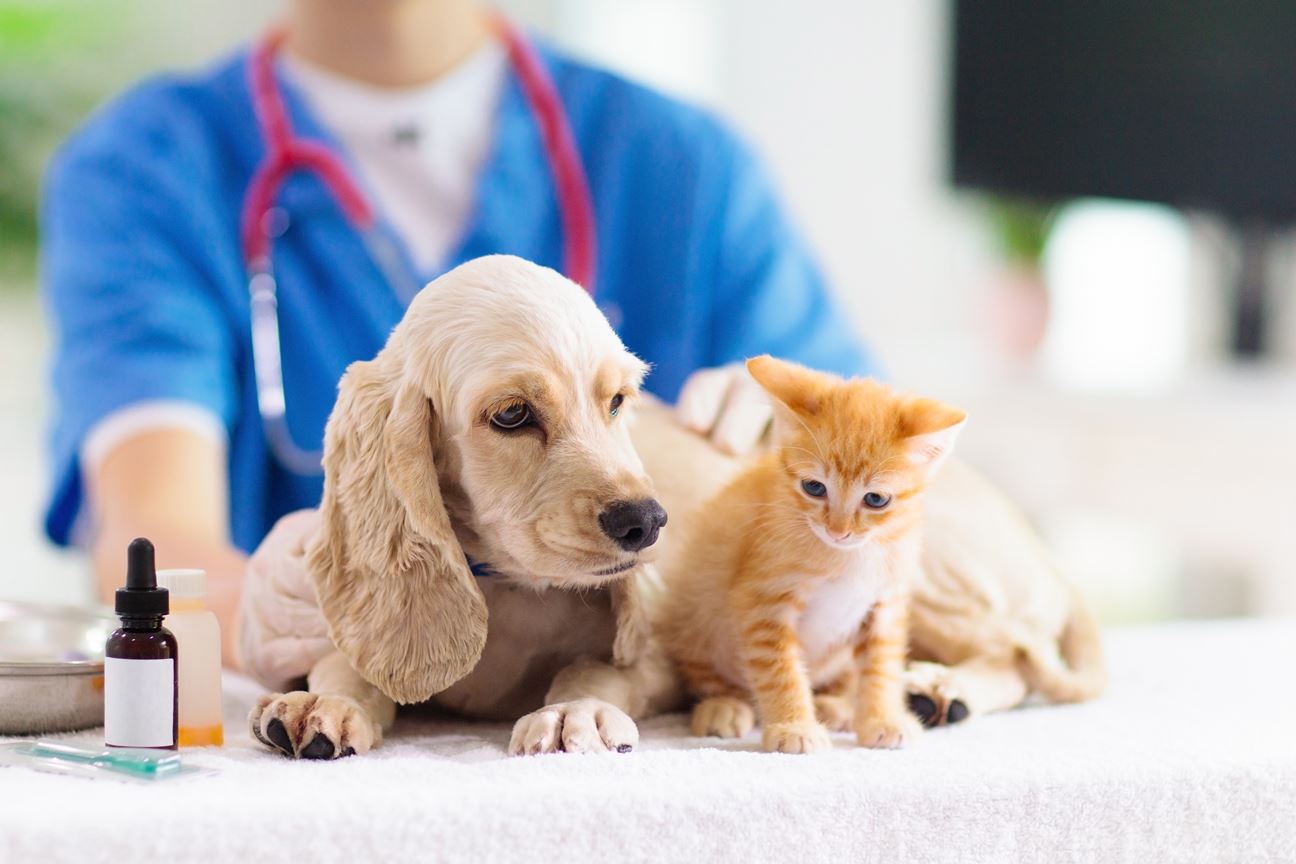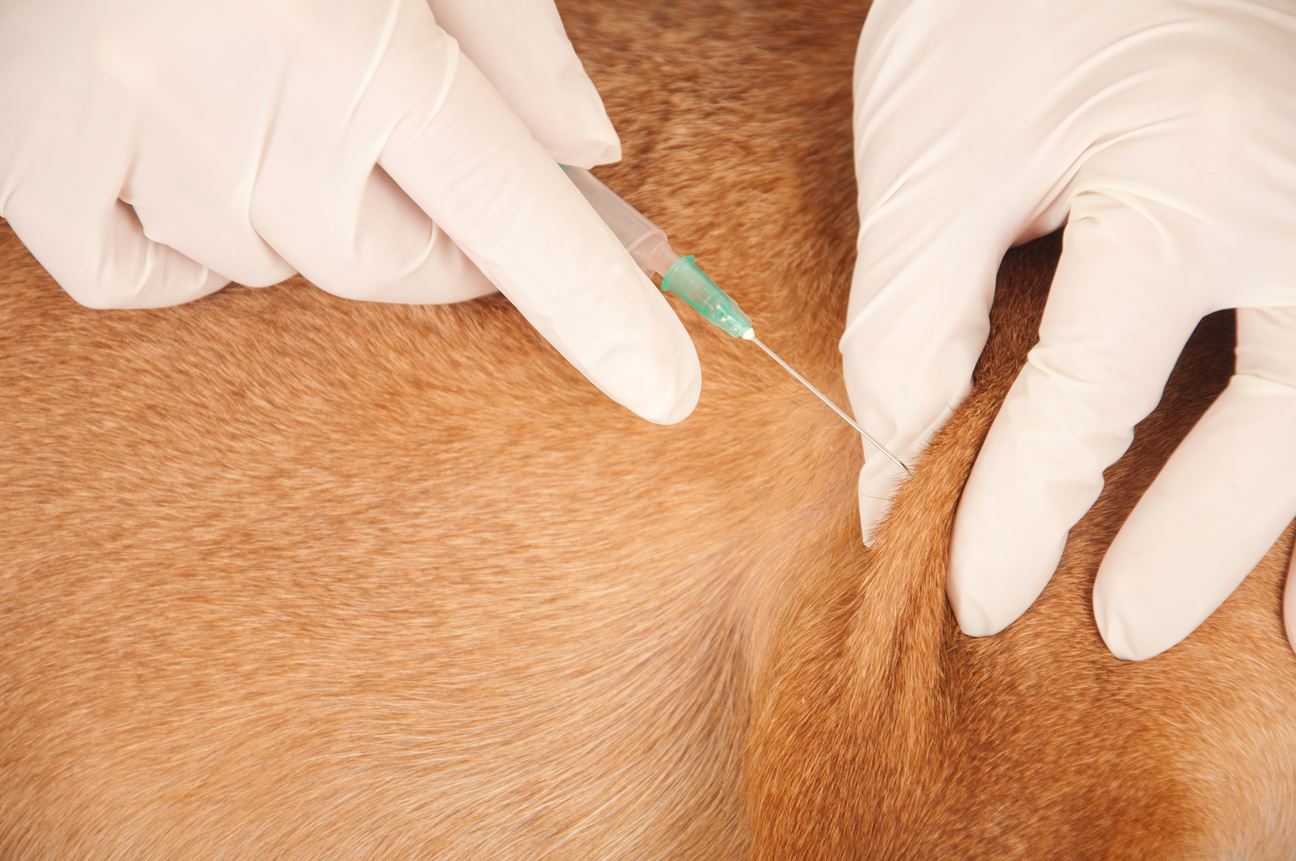Vaccinating and re-vaccinating your pets on time is one of the best ways to prevent the onset of deadly and often fatal diseases. Here's an all-you-need-to-know about it!
Young puppies and kittens receive a small amount of natural immunity from their mother’s milk, exchanged in the form of a substance called Colostrum, during the first few days of nursing. However, this temporary maternal protection wanes by the age of 6–9 weeks. To continue and enhance this protection, vaccinations are available to protect the animal from contracting various highly contagious diseases. There is a large anti-vaccination theory that floats around human and animal vaccination protocols. However, keeping in mind the kind of diseases that are endemic to India or are largely prevalent, we need to compulsorily ensure that we do not just vaccinate our little pets on time but also remember to give their boosters on time.

Let’s start by focusing on the important vaccinations for puppies and kittens during their first year of life in the Indian context. An important thing to remember is that different veterinary doctors can have different vaccination protocols. I’m about to elaborate on the vaccination protocol that I personally recommend.
For Pet Dogs, the first vaccine that is generally given is the “Puppy DP” between 4 to 6 weeks of age. This protects the puppy from deadly life-threatening airborne viruses such as Parvo and Distemper.
The Anti-Rabies Vaccine, which I recommend next, can be given as early as 45 days with a Booster Shot after 21 days.
Around 8 weeks of age, a combined cluster of vaccines commonly known as 5-in-1, 7-in-1, 9-in-1 or 11-in-1 is given with a Booster Shot after 21 days again. These protect your puppy from viruses such as Adenovirus, Parvovirus, Distemper, Leptospira, and some other deadly diseases, which can be fatal for your puppy. Don’t be confused about which vaccine cluster is the best. There is a base level protection against five diseases and in the rest of the vaccines, there is increased protection against more strains of Leptospira. 9-in-1 and 11-in-1 also provide protection against Coronavirus.

Once your puppy grows up, you can also consider giving the optional vaccine for Kennel Cough, which is an intranasal vaccine, which is inhaled straight in the nostrils of your puppy. This vaccine is a once in a lifetime vaccine that protects your pet sufficiently from Kennel Cough. Animals are often susceptible to the infection when their immunity is compromised due to some other reason. The kennel cough vaccine is often recommended before you can board your dog at a hostel or foster.
For Pet Cats, there are 3 core vaccinations that are vaccinated together in one injection commonly known as Feligen or Tricat in India. This can be given to a kitten between 6 to 8 weeks of age followed by a booster at 16 weeks of age.
Anti-Rabies Vaccination is also given to cats, following exactly the same protocol as dogs i.e. the first shot is given at 45 days followed by a Booster after 21 days.
Now you know all the important Vaccinations your pet dog or cat should receive in the first year. So, what are the other important things to remember about Pet Vaccinations?
- One of the most important things to remember is to “REMEMBER TO REVACCINATE ON TIME”. Some vaccinations are required to be given boosters annually, and some are required once in three years. Be sure to ask your vet about when vaccine boosters are required and post reminders for yourself. I would recommend setting a reminder or an alarm on your phone since so many apps are equipped for this purpose. You pet depends on you entirely for its protection and this isn't a responsibility you should take lightly.
- Insist that your Vet gives your pet a complete once over before administering any vaccination. Vaccines should not be administered if your pet is running a fever or in any poor health condition. Vaccines must be given to healthy animals only.
- Some pets do not mind injections and do not even realise they are being given a shot! However, some pets are sensitive and will yowl incessantly at the prick. If this happened the first time around, the next time, you can request your vet to use a thinner gauge needle or an insulin syringe needle.
- Distract your pet while he or she is getting a vaccine. Holding them firmly while being injected is extremely important. You can also speak to them, lift their front legs or tap them on the nose to distract them.
- You may observe that your pet is slightly dull the day after vaccination or is not eating well. If this persists for more than 24 hours, please visit your vet.
- If you feel a lump at the point of the injection, which is increasing over a month or larger than 2 cm or is simply present for more than 3 months, please make sure that your Vet is aware of this.
- Also, remember, that if you ever need to travel abroad with your Pet, timely vaccination along with their records is absolutely critical, so be meticulous about storing your Vaccination Certificates and records. With that, don't forget to get a Bottle Sticker of any Vaccination that is administered to your pet. This puts on record the Vaccine Company and Batch Number of the Vaccine for future reference.
Vaccinating and revaccinating your pets on time is one of the best ways to prevent the onset of deadly and often fatal diseases. Always remember, be smart, vaccinate.